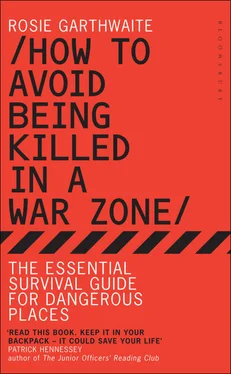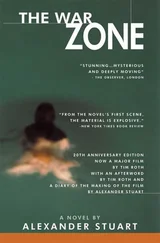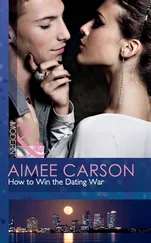‘So you have to follow your instincts. Be prepared for each situation to be different.
‘If you are in a soft-skin car that is under sustained fire, like in an ambush, get out of it quickly, as I did in East Timor. It is difficult, but staying inside will certainly get you killed.
‘Listen to those more experienced than you. I was fortunate in Cambodia and Vietnam to have around me very experienced journalists, some of whom had fought as soldiers in World War II, and they were generous with their advice of what to look out for in the field, where to go, where to hide in a firefight, all these things.
‘I tended to drive myself to war because I did not want to put my life in the hands of another colleague. Also, travelling in a car with other journalists can sometimes be more dangerous, as being together can turn them into courage snobs and they lose perspective. I know of incidents of this, some fatal. No one wants to be the first to buckle and say we have gone too far, this is too dangerous, admit he or she is afraid and say to the others, “Let’s get out of here”.
‘Much better to know your own capabilities. The drawback is that if something happens to you, there may be nobody to help or tell the tale.
‘Never lose your temper with locals who are threatening you, but at the same time do not be so craven that it is easy for them to shoot you before any others. And don’t argue if you are held up over trivial things. I remember a German who was shot dead by rebels in the Congo because he refused to hand over the keys to his Mercedes, which he had saved up for and just bought. It was brand new, but he was silly. He would be alive now to buy another if he had given up the keys. He had lost his perspective and it proved fatal.
‘There is no special talisman I take into the field. But I do generally have some personal photographs with me. These pictures are anchoring. They attach you to your real life, and they can also help to break the ice with potential enemies. They show that you too are a human being, not just a cipher to get rid of with a bullet or a bash on the head. When I was kidnapped in Ethiopia the first thing I did was to step out and very deliberately shake the hand of my kidnapper, who was training his AK-47 on me. It made him deflect his weapon and helped break the ice. Later I showed my kidnappers a picture of my girlfriend. It all helped.
‘There is no point in being a journalist if it destroys your humanity so that you put the story above everything, even a person’s life. You cannot help everyone, of course, in a war situation or a natural disaster. But you should always be ready to help with a little money or food.
‘I constantly marvel at how the poorest and most desperate people, say the victims of an earthquake who have lost absolutely everything, including their family and homes, talk to you, a complete stranger, and ask for nothing in return. It is very humbling and good to help them.
‘On occasion, I have made some mistakes, pushed the envelope too far, especially when I was in Cambodia and Vietnam, but fortunately not to the point of being wounded or getting a colleague wounded or killed. Such situations remind me of my mortality. I vow never to put myself in such a situation again, but inevitably it can happen, and I must always steel myself for it and be prepared.
‘Coming back from a combat zone is tricky. Usually, I have to write a story, so am under a lot of pressure. That is a good thing. I isolate myself so that I can retain the authenticity of the experience, even to the point when I was in Vietnam or Cambodia of not washing the muck off myself or changing my clothes until I had written the piece. It’s no good making oneself too comfortable.
‘You feel exhilarated to be alive after going through so much fear. Perhaps broken too because of what you have seen and experienced. It’s important to realize that these things are natural reactions to the exceptional situations you have gone through. Living on the edge of death can also make love and sex more real and intense. It isn’t necessarily true, but making love certainly helps.
‘I think that no one who sees a lot of combat and misery comes back from it in one piece. Trauma is cumulative. See the signs before it really damages you and, if necessary, get help.’
/Postscript by Wadah Khanfar
Wadah Khanfaris the director-general of Al Jazeera, having worked his way up from cameraman, reporter, correspondent and Baghdad bureau chief. He has worked in many war zones and picked up solid ideas on how to go about your job and life while surrounded by danger. Anyone who has ever met him will tell you that to hear him speak is an inspiration. Here’s what he had to say when I asked him how he has avoided getting killed in a war zone:
‘There is nothing more important than understanding the area where you are going. You cannot go anywhere without understanding what the people stand for – what their ideology is and how they understand the ideology around them. You need to understand how their perceptions differ from yours.
‘You should not be discovering people and their background at the point where you meet them for the first time. Your understanding should be deep and specific, not superficial. Most of the time we have a general idea, but you need details.
‘You can read. But there are sources of knowledge that are more important than a few articles or a book recommended to you.
‘History is important – it tells us what people believe and how they will react a thousand years in advance. It might look like chaos now, but if we really understand the history – and I mean a long way back – we discover that today is actually just a repeat. It is often true that new and apparently radical groups often look back to history for how to navigate their way.
‘The second most important thing is religion. The people you meet will have different religious perceptions and sensitivities. That will affect the way they interact with people. Sometimes you can save yourself by referring to a religious or historical value that appeals to the person you are talking to.
‘The third most important thing is respect – a visitor should not be a judge. If you are a journalist, you should not try to put your own print on reality. Look for the familiar, but accept the differences and respect and reflect them.
‘Approach people with innocence. Never assume a group you are approaching will be against you. Approach people in a confident manner. If you go in with fear or expecting trouble, you will get into trouble.
‘Afghanis are a particularly complicated case. If you don’t understand their history and religion, and fail to show respect, you are going to be in trouble. There is a story I always refer to when thinking about Afghanis and how they work.
‘I was in Shemari valley, about 60 kilometres from Kabul, covering a story. We climbed one of the mountains, trying to reach an area where we knew we could make a story about landmines. There we found two soldiers who belonged to the Northern Alliance. They were living in a destroyed house. The temperature was minus something. The people had nothing and were not happy to see three journalists approaching. They were nervous, thinking we were a threat. They had never seen or had to interact with a journalist. The first thing we did was to greet them in their language, then ask how they were. Their clothes were torn, they had no food. I was talking to them on a human-to-human level. They were not guards any more – they were just people. The first 20 minutes was a conversation about themselves…their family situation, their happiness. This made them think we were open and alive on a human perspective.
‘As a human you can always establish some kind of communication. We explained our mission. And they helped us film the area and explained the story. When we wanted to leave they refused to let us go back. They insisted we stay for food. They said no guest could leave without food. They were passionate and determined, and I agreed to stay. They had nothing – just water and green tea. One of them ran away to search the nearest village for some food. He came back 30 minutes later with some giant, thick brown Afghani bread, freshly baked. They prepared a picnic for us with the green tea. These people had started out scared and distant, thinking we were enemies, but ended up so excited to have been able to give their guests something to eat, with pride. When I returned to the area a week later I took some small things for the guards. They were offended that I thought the relationship was reciprocal and refused the gifts.
Читать дальше




![Джонатан Димблби - Barbarossa - How Hitler Lost the War [calibre]](/books/385421/dzhonatan-dimblbi-barbarossa-how-hitler-lost-the-w-thumb.webp)







